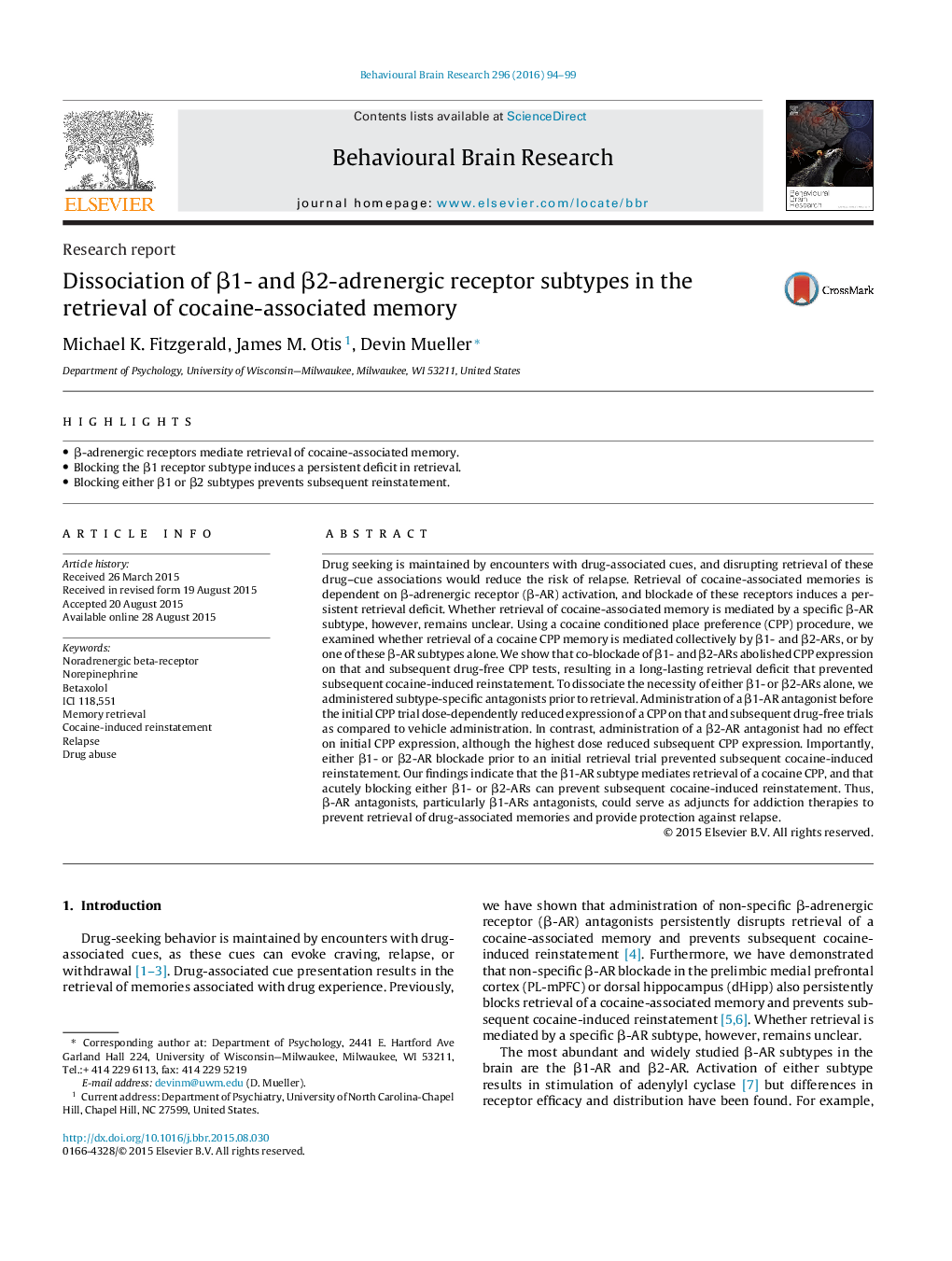| Article ID | Journal | Published Year | Pages | File Type |
|---|---|---|---|---|
| 4312322 | Behavioural Brain Research | 2016 | 6 Pages |
•β-adrenergic receptors mediate retrieval of cocaine-associated memory.•Blocking the β1 receptor subtype induces a persistent deficit in retrieval.•Blocking either β1 or β2 subtypes prevents subsequent reinstatement.
Drug seeking is maintained by encounters with drug-associated cues, and disrupting retrieval of these drug–cue associations would reduce the risk of relapse. Retrieval of cocaine-associated memories is dependent on β-adrenergic receptor (β-AR) activation, and blockade of these receptors induces a persistent retrieval deficit. Whether retrieval of cocaine-associated memory is mediated by a specific β-AR subtype, however, remains unclear. Using a cocaine conditioned place preference (CPP) procedure, we examined whether retrieval of a cocaine CPP memory is mediated collectively by β1- and β2-ARs, or by one of these β-AR subtypes alone. We show that co-blockade of β1- and β2-ARs abolished CPP expression on that and subsequent drug-free CPP tests, resulting in a long-lasting retrieval deficit that prevented subsequent cocaine-induced reinstatement. To dissociate the necessity of either β1- or β2-ARs alone, we administered subtype-specific antagonists prior to retrieval. Administration of a β1-AR antagonist before the initial CPP trial dose-dependently reduced expression of a CPP on that and subsequent drug-free trials as compared to vehicle administration. In contrast, administration of a β2-AR antagonist had no effect on initial CPP expression, although the highest dose reduced subsequent CPP expression. Importantly, either β1- or β2-AR blockade prior to an initial retrieval trial prevented subsequent cocaine-induced reinstatement. Our findings indicate that the β1-AR subtype mediates retrieval of a cocaine CPP, and that acutely blocking either β1- or β2-ARs can prevent subsequent cocaine-induced reinstatement. Thus, β-AR antagonists, particularly β1-ARs antagonists, could serve as adjuncts for addiction therapies to prevent retrieval of drug-associated memories and provide protection against relapse.
